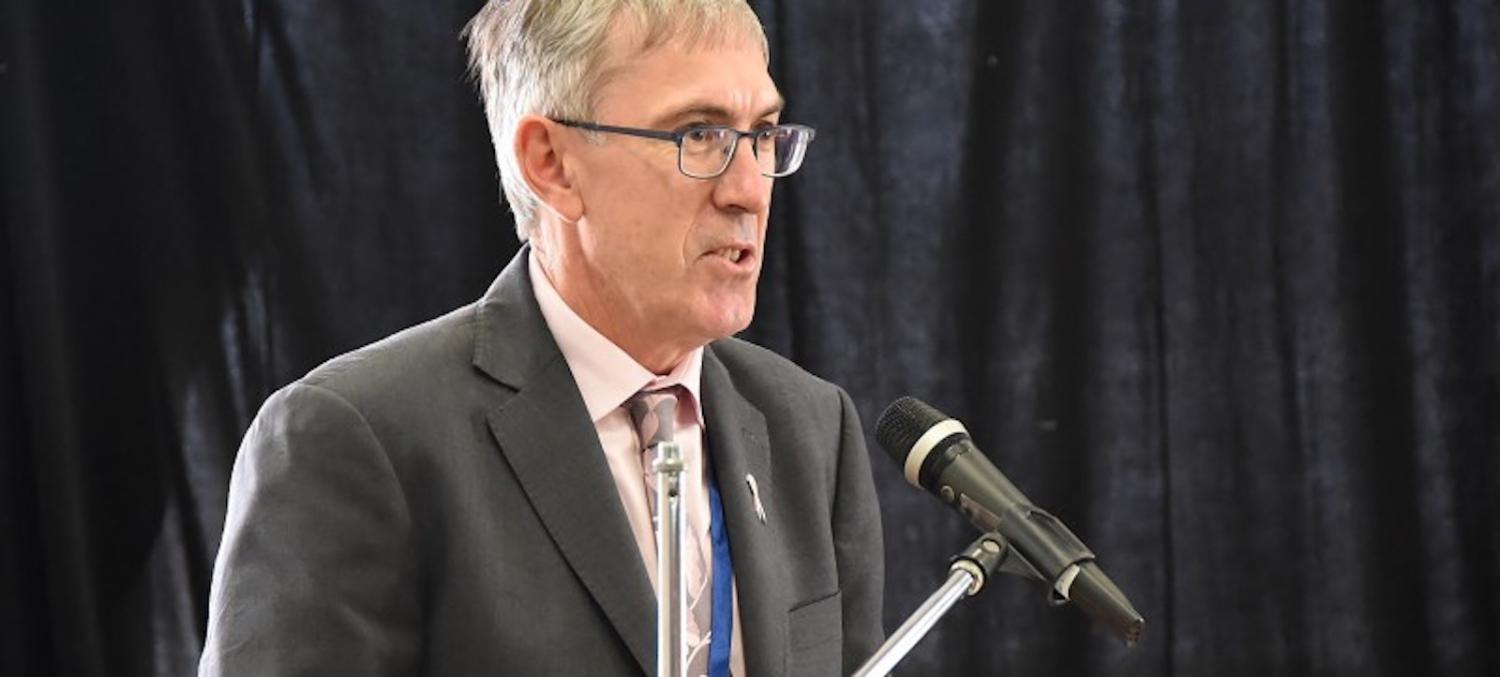The Department of Foreign Affairs and Trade has now established an Office of the Pacific, a measure foreshadowed in 2018 as part of Australia’s Pacific “step up”. Ewen McDonald, formerly High Commissioner in Wellington and a Deputy Secretary in DFAT, has been appointed head of the Office.
McDonald will sit atop DFAT’s two Pacific divisions, the Pacific Bilateral Division and the Pacific Strategy Division. But the intention is that the new office will exercise influence on Pacific policy and implementation across the public service, not just in DFAT. Consistent with this ambition, relevant government agencies and departments are being invited to attach liaison officers to the office.
It is remarkable to reflect on the expansion of the part of DFAT responsible for Pacific policy. The Pacific has never loomed so large.
It is remarkable to reflect on the expansion of the part of DFAT responsible for Pacific policy. In the late 1980s, I and perhaps five others worked in the Pacific Bilateral Section: over time, that section has moved up the public service evolutionary scale to become a branch and now a division. Of course, the integration of AusAID into DFAT in 2013 in and of itself demanded a step up (pardon the pun) in the attention that DFAT paid to the Pacific. But the creation of the Office of the Pacific takes this evolution a step further. The Pacific has never loomed so large within DFAT.
What will McDonald’s priorities be as the government’s new Pacific Czar?
The job will have two key aspects. The first of these will be outward-facing, involving liaison, advocacy, and representation with Pacific island governments, regional organisations, and other external players. The second will be Canberra-centric, focused on major-project management and coordination among the various agencies and departments with a stake in Pacific policy.
It’s likely that the second of these roles will end up being the more consequential of the two. McDonald will certainly speak with authority when he travels in the Pacific; indeed, he won’t be able to do his job without doing so. But it’s not as if Australia is suffering from a deficit of senior official-level engagement in the region. McDonald will be the most senior of no less than ten Senior Executive staff in DFAT working directly on the Pacific. And that’s not counting Australia’s diplomatic footprint, already second to none in the region and about to add five new posts.
The government will need to resist any temptation to see McDonald’s role as a substitute for political-level engagement in the region. Australia has, in Scott Morrison, a prime minister who clearly understands the importance of personal contact at the political level. Indeed, both sides of politics now say they get this. McDonald’s appointment should support this shift, not undermine it.
With a plethora of policy initiatives underway, planned or announced, McDonald’s major challenge and his main contribution as Pacific Czar will be to oversee and risk-manage major projects and to enhance cooperation and coherence among Canberra-based agencies.
Two projects in particular will require McDonald’s close attention: the rollout of Australia’s new $2 billion Infrastructure Financing Facility, and implementation of the “Papua New Guinea electrification partnership” (the agreement to work together with Japan, New Zealand and the US to connect 70% of PNG’s population to electricity by 2030). If these two mega-initiatives aren’t keeping McDonald awake at night, he isn’t paying enough attention.
Security is an area where stronger coordination among Canberra agencies is needed. The recent bungle over Neil Prakash’s citizenship status demonstrated this in miniature, but the stakes are much higher. Both the ADF and the AFP are already deeply engaged in the region, and major initiatives have been announced including an agreement with Fiji to develop the Blackrock Peacekeeping and Humanitarian centre, and an agreement with Papua New Guinea to redevelop the Lombrum naval base in Manus as, effectively, a joint facility. Australia’s Border Force will also step up its engagement. At the same time, DFAT is funding the creation of a new Australia-Pacific Security College.
So some deft footwork, and maybe some banging of heads, may be needed to ensure that Australian departments and agencies aren’t tripping over each other in the region, that initiatives are rolled out coherently and effectively, and that Pacific Island governments feel they are genuine partners in all this activity and aren’t simply being dragged along willy-nilly.
McDonald is well-suited to managing the two aspects of his new job. His relaxed personal style will serve him well in the Pacific. While he has a relative lack of direct experience in the region, he is by no means unknown, having served as co-chair of the Green Climate Fund where he was seen as an effective advocate for Pacific interests. His professional relationships in New Zealand will be a valuable asset in the Pacific. And he also knows his way around Canberra, having worked at the Deputy Secretary level for around a decade. That experience will be vital as the Office of the Pacific beds down, particularly in gaining buy-in to the concept across government.
It should be noted that an Office of the Pacific has existed before in DFAT. The Office of Pacific Island Affairs, to give it its exact title, was established in response to the then ground-breaking appointment of Gordon Bilney in 1993 as Minister for Development Cooperation and Pacific Island Affairs. It was a much smaller beast than today’s behemoth, but it didn’t survive the change of government in 1996.
One can only hope that history won’t repeat itself and that, should there be a change of government this year, the Office of the Pacific will remain intact. There does seem to be a bipartisan consensus on the importance of the Pacific in Australia’s foreign policy outlook. The Office of the Pacific can play a key role in supporting that, whoever is in government after May 2019.

